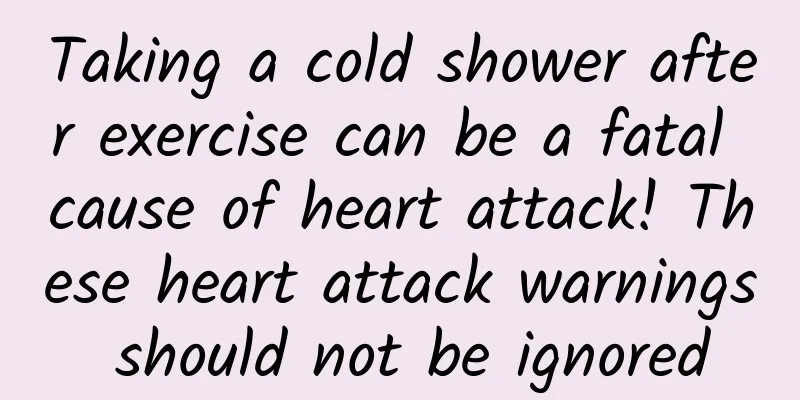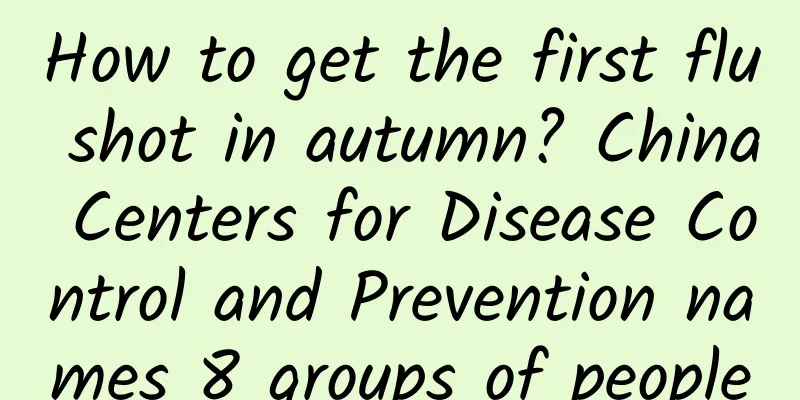Taking a cold shower after exercise can be a fatal cause of heart attack! These heart attack warnings should not be ignored

|
Mr. Liu, 47 years old, loves sports, especially playing basketball with a few friends. Recently, the weather was hot, and after playing basketball, he chose to take a cold shower to cool down. Unexpectedly, this bucket of cold water, although refreshing, triggered a tragedy - Mr. Liu soon developed persistent chest tightness , and after a few hours, he also had chest pain , and was eventually diagnosed with myocardial infarction . Despite the emergency intervention of the doctor, Mr. Liu died due to ineffective rescue. Mr. Liu's family expressed confusion: " He has always been in good health, how could he die just because of a cold shower? " Director Liu of the Department of Cardiology at the Chengdu Second People's Hospital explained this: In a high temperature environment, the human body's pores open to dissipate heat. The sudden shock of cold water will not only cause the pores to close suddenly, but also stimulate the body's sympathetic nervous system, causing blood pressure to soar, arrhythmias , and even triggering a fatal crisis of myocardial infarction. Myocardial infarction: Not a "killer" without signs Cardiovascular disease has become the leading cause of death from disease in China. According to statistics, one in five adults suffers from cardiovascular disease, and the shadow of myocardial infarction hangs over countless families. Myocardial infarction, also known as acute myocardial infarction, is caused by acute occlusion of coronary arteries, leading to myocardial ischemia and hypoxia , which in turn causes myocardial necrosis. In severe cases, it can rapidly progress to heart failure, shock and even sudden death. However, a heart attack is not without warning. Before it actually occurs, the body often sends out a series of subtle signals. Those ignored distress signals The onset of myocardial infarction is not without signs. Its precursors may appear one month, one week, or even a few hours before the onset of the disease. Common typical symptoms include severe pain behind the sternum or in front of the heart, accompanied by a feeling of oppression or tightness, as if a heavy object is pressing on the chest, accompanied by profuse sweating and a strong sense of impending death. But in addition to these typical manifestations, there are also some atypical symptoms, such as toothache, upper limb pain, abdominal pain , etc., which are often misdiagnosed or ignored, delaying the best time for treatment. Even more insidious are symptoms such as dizziness, headache, left upper limb weakness, blurred vision, hearing loss, unexplained feeling of restraint, sudden fatigue and drowsiness , which may be related to cardiovascular disease but are often mistaken for other minor problems. For example, the numbness and pain in the left shoulder blade and left upper limb may be a faint cry for help from the heart; sudden hearing loss in both ears may also be an early sign of angina pectoris. These subtle signs are the body's way of reminding us that the heart is facing a crisis. The 8 main causes of myocardial infarction 1. Bad living habits: smoking, drinking, staying up late and other behaviors are risk factors for inducing myocardial infarction. 2. Underlying diseases: Patients with chronic diseases such as hypertension, diabetes, and hyperlipidemia have a significantly increased risk of myocardial infarction. 4. Physical trauma: Neuroendocrine imbalance after surgery or trauma may also induce myocardial infarction. 5. Overwork: Long-term, high-intensity physical or mental labor increases the burden on the heart. 6. Emotional fluctuations: Emotional fluctuations such as anger, tension, extreme joy and sorrow can lead to a sudden rise in blood pressure and myocardial ischemia. 7. Overeating: After a meal, metabolism accelerates, blood flows to the digestive system, and blood supply to the heart decreases. 8. Bowel habits: Straining during bowel movements can cause a sudden increase in abdominal pressure, which may induce a heart attack. How to save yourself? When a heart attack occurs, every minute is crucial. Director Liu of the Department of Cardiology at the Second Affiliated Hospital of Hunan University of Chinese Medicine recommends: • Take emergency medicine: Immediately take nitroglycerin or quick-acting heart-saving pills sublingually. • Dial 120: explain the situation, choose a hospital that can treat the condition quickly and effectively, and strive to get professional rescue in the shortest time possible. • Rest quietly: Lie down in a comfortable position and wait for the ambulance. Stay calm and avoid any movement to avoid putting more strain on your heart. In short, myocardial infarction is not completely unpreventable. In daily life, pay attention to self-health management, identify the warning signs of myocardial infarction, take active preventive measures, master the necessary self-help knowledge, and do not let myocardial infarction become the end of your life. |
<<: Introverted personality: Have you “involved” yourself today?
>>: Looking forward to 6G, what can it bring to our lives?
Recommend
Why are the scores of domestic browsers so different? I was shocked after the test
For users, the key to evaluating a good browser i...
Apple iOS 15/iPadOS 15 developer preview/public beta Beta 7 released
On August 26, Apple pushed the iOS 15/iPadOS 15 d...
Is Dong Mingzhu's car-making worthy of Wang Jianlin's 500 million yuan and can it become another pride of domestic cars?
Do you have Gree Electric Appliances at home? I be...
How to calculate personal income tax on wages in 2020?
Our country's laws stipulate that if a worker...
The complete TV series "Tang Brick" is free to watch. The complete TV series "Tang Brick" is free to watch online!
Introduction: "Tang Brick" is a time-tr...
NetEase enters the enterprise application market with Youdao Cloud Collaboration
On November 4, domestic Internet giant NetEase of...
How to utilize consumers’ five senses to develop an operational strategy that ignites user desires?
We who work in operations communication often say...
Tesla's batteries depend on its Gigafactory's history
Tesla has just released its second quarter 2016 f...
Want to "see an exhibition" in the universe hundreds of light years away? This astronomical telescope paints a picture of the "cradle" of stars!
In recent years, more and more people have begun ...
August 2021 "Science" Rumors List: Camel milk is closer to breast milk? Are electric cars not afraid of being soaked in water?
The August "scientific" rumor list is r...
How to operate an event in 7 steps for beginners
For a novice operator , how can you do a good job...
Finally supports multiple devices online at the same time! Detailed experience of the new version of WeChat
WeChat has a new version. You know what, this upd...
What does space traffic management involve?
The so-called space traffic management is, of cou...
Seven training camp short video driving and monetization compulsory course video
Seven training camp short video driving and monet...









